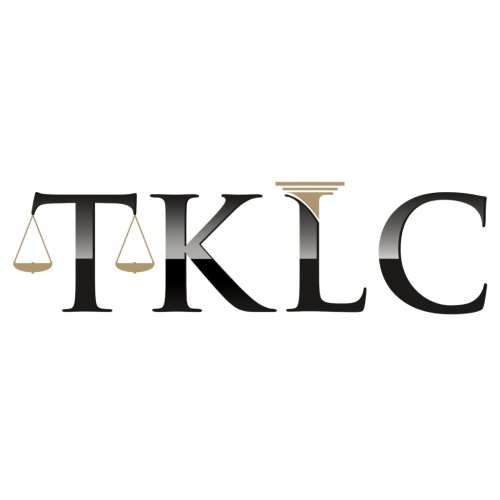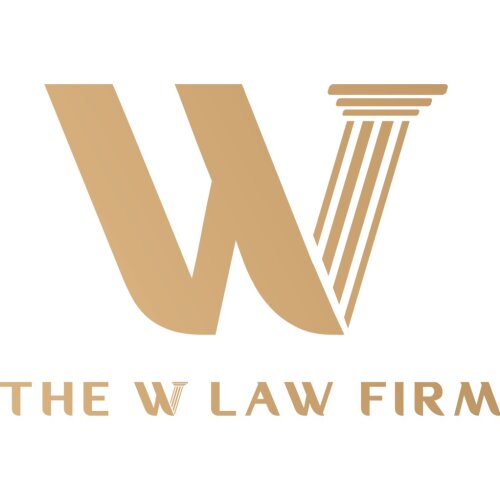Best Foreclosure Lawyers in Oman
Share your needs with us, get contacted by law firms.
Free. Takes 2 min.
Free Guide to Hiring a Real Estate Lawyer
Or refine your search by selecting a city:
List of the best lawyers in Oman
About Foreclosure Law in Oman
Foreclosure in Oman involves the legal process by which a lender seeks to recover the balance of a loan from a borrower who has stopped making payments by forcing the sale of the asset used as collateral for the loan. In Oman, foreclosure laws are influenced by principles of Islamic finance, and therefore, the process and rights of lenders and borrowers can be unique compared to other jurisdictions. Legal proceedings generally ensure that both parties are treated fairly, emphasizing repayment terms and conditions clearly defined in the financing contract. Understanding Oman's legal landscape is crucial for anyone facing foreclosure or involved in financing real estate assets.
Why You May Need a Lawyer
Individuals facing foreclosure in Oman often require legal assistance for several reasons. Here are some common scenarios:
- Understanding Legal Rights and Obligations: A lawyer can help clarify the rights and responsibilities of both the lender and the borrower under Omani law.
- Negotiation and Settlements: Legal professionals can help negotiate terms with lenders to possibly modify loan terms or reach a settlement to avoid foreclosure.
- Contractual Disputes: Lawyers can assist in resolving disputes over contract terms that may lead to foreclosure.
- Representation in Court: If foreclosure proceedings are initiated, legal representation is crucial to protect your interests in court.
- Complex Financial Situations: When financial distress is complex, involving multiple creditors or intricate property deals, a legal expert can provide strategic advice.
Local Laws Overview
The regulatory framework for foreclosure in Oman falls within both the Civil Transactions Law and the regulations specific to banking and financial transactions. Here are key aspects:
- Mortgage and Loans: Omani law stipulates specific rules that govern mortgage agreements and lending, requiring clear disclosures and adherences to contractual agreements.
- Judicial Process: Omani foreclosure typically requires a court order, ensuring judicial oversight of the process.
- Notice and Opportunity to Cure: Borrowers must receive adequate notice of default and have an opportunity to cure the default to avoid foreclosure.
- Public Auction: Any foreclosure sale is generally conducted as a public auction, with procedures in place to ensure fairness and transparency.
- Protection of Borrower Rights: Legal protections exist to prevent fraudulent or unfair practices towards borrowers in distress.
Frequently Asked Questions
What is foreclosure?
Foreclosure is the legal process initiated by lenders to recover the outstanding loan balance from borrowers who defaulted on their loan payments, typically through the sale of mortgaged property.
What rights do I have if my property is being foreclosed?
As a borrower, you have the right to receive notice of default, an opportunity to rectify the default, and a fair judicial process before the property is auctioned.
Can I stop the foreclosure process?
Yes, foreclosure can often be stopped if you bring the loan payments current, negotiate alternative repayment plans or loan modifications with the lender, or seek legal recourse.
How long does the foreclosure process take in Oman?
The foreclosure process duration varies based on individual circumstances, but it typically involves several steps that include legal notification and court procedures, possibly lasting several months to a year.
Are there alternatives to foreclosure?
Yes, alternatives include loan modifications, refinancing, selling the property, or filing for bankruptcy, all aimed at mitigating financial distress without foreclosure.
What happens to the proceeds from a foreclosure sale?
Proceeds from a foreclosure sale first pay off the lender's outstanding balance, with any remaining balance used to satisfy other creditors and potentially returned to the borrower.
Can lenders seek additional money if the foreclosure proceeds do not cover the loan?
Omani law typically limits lenders to recovery from the sale proceeds; however, specific terms in the loan agreement may provide for pursuing deficiencies.
Do I need to move out immediately once foreclosure starts?
You are usually allowed to stay in your property until the foreclosure sale is concluded and the property is transferred to a new owner.
Is bankruptcy a viable option to avoid foreclosure?
Bankruptcy can be a viable option as it may temporarily halt foreclosure proceedings and allow for restructuring of debts.
Should I hire a lawyer for foreclosure issues?
It is advisable to hire a lawyer to navigate the complexities of foreclosure laws and to help negotiate with lenders or provide representation in court.
Additional Resources
Here are some resources and organizations that can provide valuable assistance:
- Ministry of Housing and Urban Planning: Provides information regarding property laws and regulations.
- Central Bank of Oman: Offers guidelines on mortgage and financial regulations.
- Legal Centres and Law Firms: Offer professional legal advice and representation specific to foreclosure cases.
Next Steps
If you are facing foreclosure or need legal assistance in Oman, consider taking the following steps:
- Consult with a Legal Expert: Contact a law firm specializing in real estate or foreclosure to understand your options and rights.
- Gather Relevant Documentation: Collect all loan agreements, notices, and correspondences related to your mortgage or property.
- Explore Alternative Solutions: Work with your legal advisor to explore potential options such as loan modifications or repayment plans.
- Consider Mediation: Engage in mediation or discussions with your lender to attempt to resolve the issue amicably.
Approaching the situation with legal guidance can help protect your interests and potentially minimize financial and legal repercussions.
Lawzana helps you find the best lawyers and law firms in Oman through a curated and pre-screened list of qualified legal professionals. Our platform offers rankings and detailed profiles of attorneys and law firms, allowing you to compare based on practice areas, including Foreclosure, experience, and client feedback.
Each profile includes a description of the firm's areas of practice, client reviews, team members and partners, year of establishment, spoken languages, office locations, contact information, social media presence, and any published articles or resources. Most firms on our platform speak English and are experienced in both local and international legal matters.
Get a quote from top-rated law firms in Oman — quickly, securely, and without unnecessary hassle.
Disclaimer:
The information provided on this page is for general informational purposes only and does not constitute legal advice. While we strive to ensure the accuracy and relevance of the content, legal information may change over time, and interpretations of the law can vary. You should always consult with a qualified legal professional for advice specific to your situation.
We disclaim all liability for actions taken or not taken based on the content of this page. If you believe any information is incorrect or outdated, please contact us, and we will review and update it where appropriate.
Browse foreclosure law firms by city in Oman
Refine your search by selecting a city.

















